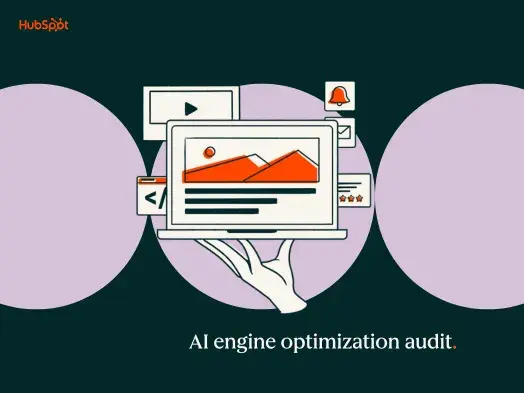By Craig Ramsay
In the race for companies to modernise and add payment capabilities, many overlook the cornerstone of financial accuracy – the ledger. However, with threats come opportunities – demonstrated in the rise in demand for Ledger-as-a-Service.
As many businesses increasingly adopt fintech capabilities, a critical yet often overlooked element is the ledger. In their rush, the ledger – once a cornerstone of financial accuracy – has been left behind. Consequently, many companies are now dealing with the fallout of financial balances that are frequently out of sync. This issue is particularly problematic for businesses trying to scale and maintain real-time financial operations.
As many businesses increasingly adopt fintech capabilities, a critical yet often overlooked element is the ledger. In their rush, the ledger – once a cornerstone of financial accuracy – has been left behind.
Consequently, many companies are now dealing with the fallout of financial balances that are frequently out of sync. This issue is particularly problematic for businesses trying to scale and maintain real-time financial operations.
A solution to this growing problem could be Ledger-as-a-Service (LaaS), a real-time, double-entry ledger system designed to automate financial management and enable businesses to stay accurate, efficient and innovative. Let’s explore how LaaS addresses these challenges and paves the way for a more streamlined and scalable future.
The Problem: Financial Discrepancies Are Killing Growth
The reality for most businesses is their financial databases are a far cry from perfection. As companies scale, the systems that manage their financial data can struggle to cope and at worst, fall apart. Without a real-time, automated ledger, transactions go out of sync with the bank and other SaaS systems, payments get lost, and financial discrepancies become the norm. The bigger a company grows, the more chaotic it gets.
And this isn’t just an inconvenience – it’s a business killer. Every out-of-sync balance is a risk waiting to happen, a manual reconciliation job that eats up time, money, and resources. This acts as a hindrance to growth.
Some financial technology companies have learned this lesson the hard way. Evolve and Synapse are examples of what happens when balance sheets go wrong. The truth is most companies don’t realise the danger until it’s already too late.
The problem is simple: A lot of businesses have been sold the dream of being ale to facilitate payment technology without having the infrastructure to support it. They rush to integrate payments and other financial tools but forget the most critical piece of the puzzle: the ledger. Without a purpose-built, real-time ledger system in place, everything crumbles.
The Solution: Ledger-as-a-Service (LaaS)
This is where Ledger-as-a-Service (LaaS) comes into play. LaaS offers businesses the chance to get their financial house in order – quickly, accurately, and without the headaches. At the heart of LaaS is the double-entry accounting principle, which tracks both the source and destination of every transaction. No more manual reconciliation. No more errors. Just financial precision, delivered in real time.
Let’s be clear: LaaS isn’t just another software tool. It’s a revolution. With LaaS, every transaction is linked and synchronized with the bank, ensuring that balances are always in lockstep with reality. This isn’t some clunky, legacy system that requires babysitting. LaaS is seamless, scalable, and designed to grow with a business that removes the need to build a ledger system from scratch. It’s built for engineers and allows companies to skip the painful process of mastering double-entry accounting and gives instant access to the same kind of financial infrastructure that powers the big financial players.
The Benefits: Precision, Speed, and Growth
The first and most obvious benefit of LaaS is simple: accuracy. Every transaction is recorded the moment it happens, meaning companies always know exactly where their money is..
But it’s not just about accuracy – it’s about speed. When financial systems are reconciling in real time, no time is wasting fixing payment operation errors and closing the books. It frees up time for companies to move faster, innovate and grow. Finance teams spend less time on manual, error-prone work and more time on strategic decisions that push the business forward.
And let’s talk about growth. LaaS also simplifies the process of financial reconciliation by ensuring that businesses speak the same “language” as their banks, payment systems and accounting software. When financial systems are always in sync, companies can build faster, minimise operational delays, and reduce the risk of errors. Without these factors dragging down growth, companies are free to scale with fewer limitations.
What’s Possible: Democratising Financial Infrastructure
One of the most exciting aspects of LaaS is its potential to democratise financial infrastructure. Just as companies like Stripe gave startups the same payments infrastructure as Amazon, LaaS is now enabling businesses of all sizes to access the same financial precision as giants like Square and Uber.
This democratisation has the potential to transform industries. When even the smallest company can operate with the same financial infrastructure as the largest enterprises, the playing field becomes more level, and innovation flourishes. Startups and established companies alike can now manage their financial operations with confidence, knowing that their ledger system is accurate, scalable and future-proof.
As businesses continue to adopt payment technology capabilities, the importance of real-time financial infrastructure will only grow. LaaS is poised to play a critical role in this transformation, providing companies with the tools they need to stay ahead in a rapidly evolving digital economy. With LaaS, businesses can operate with the precision and agility required to thrive in today’s fast-moving world – and unlock new opportunities for growth and innovation.
In short, LaaS is not just a solution to the ledger problem – it’s a platform for innovation, allowing companies of all sizes to compete, innovate and grow.
The Future is LaaS: Join the Revolution
Companies are embedding financial services into their products, creating new ecosystems and revenue streams, and redefining what it means to be financial technology companies. But if they don’t have the right financial infrastructure, they’ll never reach their full potential.
In a world where every company can have access to the same financial infrastructure as the biggest players in the industry, LaaS will power growth by enabling businesses to be real-time, automated and precise.
About the Author
 After 20 years of innovating for tier 1 banks including Barclays and HSBC, Craig Ramsay joined E6 in 2023. He believes his role at E6 provides the opportunity to bring cutting edge technology to many more companies, accelerating their ability to create payment products that customers will love. He is excited to forge strong partnerships with banks, technology companies and brands across Europe, and help them succeed in the fast-changing world of payments.
After 20 years of innovating for tier 1 banks including Barclays and HSBC, Craig Ramsay joined E6 in 2023. He believes his role at E6 provides the opportunity to bring cutting edge technology to many more companies, accelerating their ability to create payment products that customers will love. He is excited to forge strong partnerships with banks, technology companies and brands across Europe, and help them succeed in the fast-changing world of payments.











